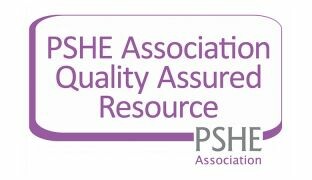PSHE
Vision
At Wembley Primary School, the physical and emotional well-being of our children is a priority. We nurture and educate our pupils in order to help them to develop the knowledge, understanding and skills needed to live happy, healthy and successful lives, now and in the future. We promote our pupils’ spiritual, moral, social and cultural development across different aspects of the curriculum.
Intent
Personal, Social and Health Education (PSHE) is a crucial part of a child’s education. It gives children access to critical information about themselves and the diverse world around them.
At Wembley School we provide a specifically tailored curriculum that is both broad and balanced and meets the unique context of our school. At the heart of this, we encourage respect and understanding of the universal rights of the child, as articulated in the UNCRC.
We aim to promote children’s knowledge, self-esteem, emotional wellbeing and resilience, and to help them to form and maintain worthwhile and positive relationships. Children will be taught to have respect for themselves, and for others, within our local, national and global communities.
We aim to develop key character skills, including decision making, informed risk taking, good communication, and self-regulation strategies.
We encourage the exploration of, and respect for, values held by different cultures and groups within our local community and promote the development of positive attitudes.
We encourage honesty and respect in all relationships, and nurture sensitivity to the needs and feelings of others. We aim to enable children to develop a deepening knowledge of their health and wellbeing, including their mental and physical health.
We aim to equip children and young people with information, skills and values to understand and to be able to cope with the physical and emotional changes that happen during puberty. The information provided will be relevant and appropriate to the age and maturity of pupils.
At Wembley Primary, we aim to begin to prepare pupils for adult life: its decisions, responsibilities, experiences and opportunities, and to allow pupils to develop fully as emotionally mature human beings.
Implementation
PSHE is taught through a range of implicit and explicit learning opportunities and is embedded throughout the curriculum. Discrete PSHE objectives are taught during weekly lessons using both ‘1 Decision’ and PSHE Association’s resources, as well as carefully chosen resources from other organisations such as the St John’s Ambulance. All resources have been carefully mapped to ensure a tailored, spiral curriculum is in place, with full coverage of the statutory PSHE objectives in KS1 and 2.
PSHE is taught by class teachers. We feel that it is important that the subject is taught by adults who know the children well and can be trusted by them in order to learn successfully about these important topics. A range of strategies are used to teach PSHE, ranging from circle time, games and whole class discussion, to small group and paired work.
PSHE objectives are also covered in other curriculum subjects, as part of our Religion and Worldview, Computing, Science and Physical Education (PE) Curricula (for example in learning about religious diversity, online safety and healthy bodies).
In addition to this, PSHE content is complemented by whole school events such as assemblies, enrichment days and charity days, as well as through our School Council, Ambassadors and Rights Respecting Schools Committee.
At Wembley Primary School, the PSHE Curriculum also makes links to the British Values of: Democracy, Rule of Law, Respect and Tolerance, and Individual Liberty, as well as to the nine protected characteristics of the Equality Act, including disability, race, sex and religion or belief. Throughout the school, emotional regulation is taught through use of the Zones of Regulation and associated strategies and tools.
The PSHE curriculum evolves constantly to be responsive to the needs of today’s pupils and preparing them to deal with issues pertinent to our local area such as childhood obesity, dental health and gang-related issues. We want our pupils to be prepared for the challenges they will face in life. Through learning about health and well-being, relationships and living in diverse world, children are given opportunities to develop their skills in a safe environment enabling them to grow into confident, caring, and respectful members of our community.


Impact
The impact of a good PSHE education cannot be understated. Quite simply, it forms the preparation for adult life, enabling a child to understand and face the challenges, complexities and questions that arise in a diverse world.
At Wembley Primary we recognise the impact of our curriculum in a number of ways. We recognise and celebrate the importance of the child’s voice, and their individual experience of PSHE education. Pupil voice and pupil work in their individual books form the heart of how we measure the impact of our teaching. The impact of the curriculum can also be seen through the personal and social skills that children at Wembley Primary will develop, including but not limited to:
-
An understanding of our diverse and complex world, and an empathy and respect for the rights of all individuals.
-
Positive and constructive communication, face to face and in the online world.
-
Resilience and self-regulation, and a keen understanding of their own health and wellbeing, especially supporting their mental and emotional development.
-
Risk management and balanced decision making, within the context of a changing and challenging world. Additionally, these ‘soft skills’ form the basis of a child’s wider development and experience.
-
The ability to recognise and develop good relationships, the reinforcement of positive mental and physical health, understanding how their body will change and grow, the development of respect and tolerance for all, an understanding of society and the role of the individual in a community – these are the skills that will equip our children for life.
How Can You Support Your Child’s Learning?
The personal and social development of our children is achieved through partnership between school and the family. To support your children, you could:
-
Come to information events for parents about the school’s approach to PSHE related issues such as the curriculum, online safety or puberty.
-
Make sure your child knows who their trusted adults are at home (who they can talk to if they are worried).
-
Talk with your children about the issues explored in PSHE education and ask them about what they have learned at school.
Here are some links to websites that you might find useful when supporting your children with topics taught in PSHE:
Children's Mental Health - Every mind matters Provides NHS-endorsed tips to help parents and carers spot the signs that children may be struggling with their mental health and how to support them; and provides advice that can help maintain good mental wellbeing.
Healthier Families - Change 4 Life Supporting families to stay healthy through diet and exercise.
NSPCC Children's Safeguarding Charity Supporting parents and carers to keep children safe, as well as resources for talking to your child about tricky topics and parenting tips.
BBC Bitesize KS1 PSHE Resources to help your KS1 child (Year 1 and 2)
BBC BItesize KS2 PSHE Resources to help your KS2 child (Years 3 - 6)
Anti-Bullying Alliance Resources to support a child who might be experiencing bullying.
From September 2020, Relationships, Sex (and Health Education) (RSHE) became statutory in all Primary Schools in England, following an extensive public consultation. During 2020, we reviewed and updated our curriculum and policy, in consultation with parents, pupils and staff, to ensure the statutory objectives are taught in a way that is appropriate to our school setting and community. A further update was shared with parents and staff in the school year 2023-24 and parents and staff were given the opportunity to view resources and comment on the policy and curriculum. The link to the RHE page and 2020 statutory advice can be found here below
If you have any questions about the PSHE curriculum or are worried about your child, please speak to their teacher, the PSHE leader (Miss Ofosu) or a senior member of staff. The curriculum is constantly updated and parents will be invited to view resources on a regular basis. However if you would like to view PSHE resources used by the school, please approach the PSHE Leader or a member of the Senior Leadership Team.

